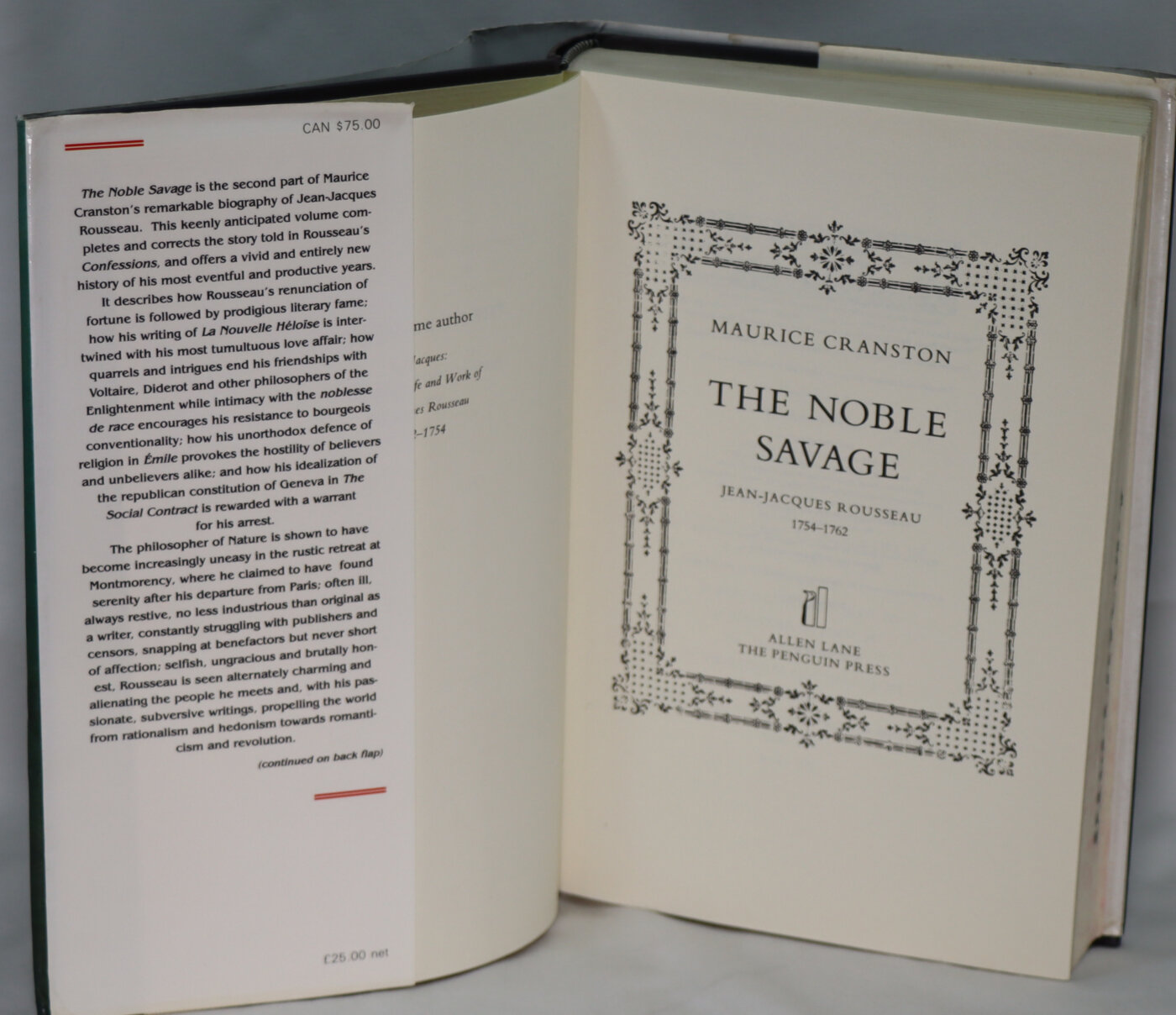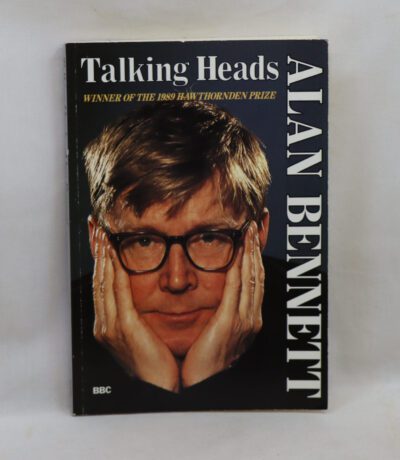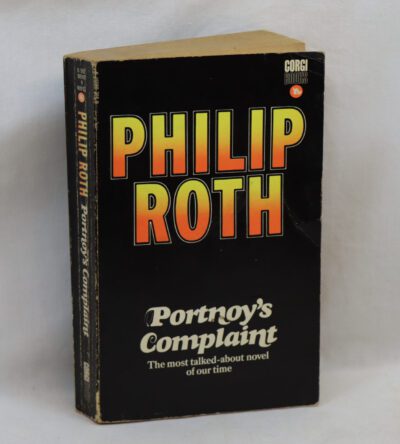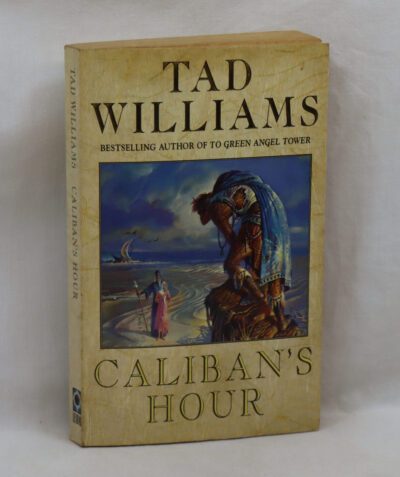The Noble Savage. Jean-Jacques Rousseau.
By Maurice Cranston
ISBN: 9780226118635
Printed: 1991
Publisher: Allen Lane. London
| Dimensions | 17 × 24 × 4 cm |
|---|---|
| Language |
Language: English
Size (cminches): 17 x 24 x 4
Condition: Very good (See explanation of ratings)
Item information
Description
In the original dust jacket. Black cloth binding with gilt title on the spine.
- We provide an in-depth photographic presentation of this item to stimulate your feeling and touch. More traditional book descriptions are immediately available
- Note: These books carry the £5.00 discount to those that subscribe to the F.B.A. mailing list.
The second part of Maurice Cranston’s biography of Rousseau. The volume completes and corrects the story told in Rousseau’s “Confessions”, and offers a history of his most eventful and productive years. It describes how Rousseau’s renunciation of fortune is followed by prodigious literary fame, how his writing of “La Nouvelle Heloise” is intertwined with his most tumultuous love affair, how quarrels and intrigues end his friendships with Voltaire, Diderot and other philosophers of the Enlightenment while intimacy with the “noblesse de race” encourages his resistance to bourgeois conventionality; how his unorthodox defence of religion in “Emile” provokes the hostility of believers and unbelievers alike; and how his idealization of the republican constitution of Geneva in “The Social Contract” is rewarded with a warrant for his arrest. Maurice Cranston, former president of the Institut International de Philosophie Politique, has taught political science at the London School of Economics since 1959. He has written a biography of John Locke and two translations of Rousseau’s works, “The Social Contract” and “A Discourse on Inequality”.
Jean-Jacques Rousseau (28 June 1712 – 2 July 1778) was a Genevan philosopher (philosophe), writer, and composer. His political philosophy influenced the progress of the Age of Enlightenment throughout Europe, as well as aspects of the French Revolution and the development of modern political, economic, and educational thought. His Discourse on Inequality, which argues that private property is the source of inequality, and The Social Contract, which outlines the basis for a legitimate political order, are cornerstones in modern political and social thought. Rousseau’s sentimental novel Julie, or the New Heloise (1761) was important to the development of pre-romanticism and romanticism in fiction. His Emile, or On Education (1762) is an educational treatise on the place of the individual in society. Rousseau’s autobiographical writings—the posthumously published Confessions (completed in 1770), which initiated the modern autobiography, and the unfinished Reveries of the Solitary Walker (composed 1776–1778)—exemplified the late 18th-century “Age of Sensibility”, and featured an increased focus on subjectivity and introspection that later characterized modern writing.
Want to know more about this item?
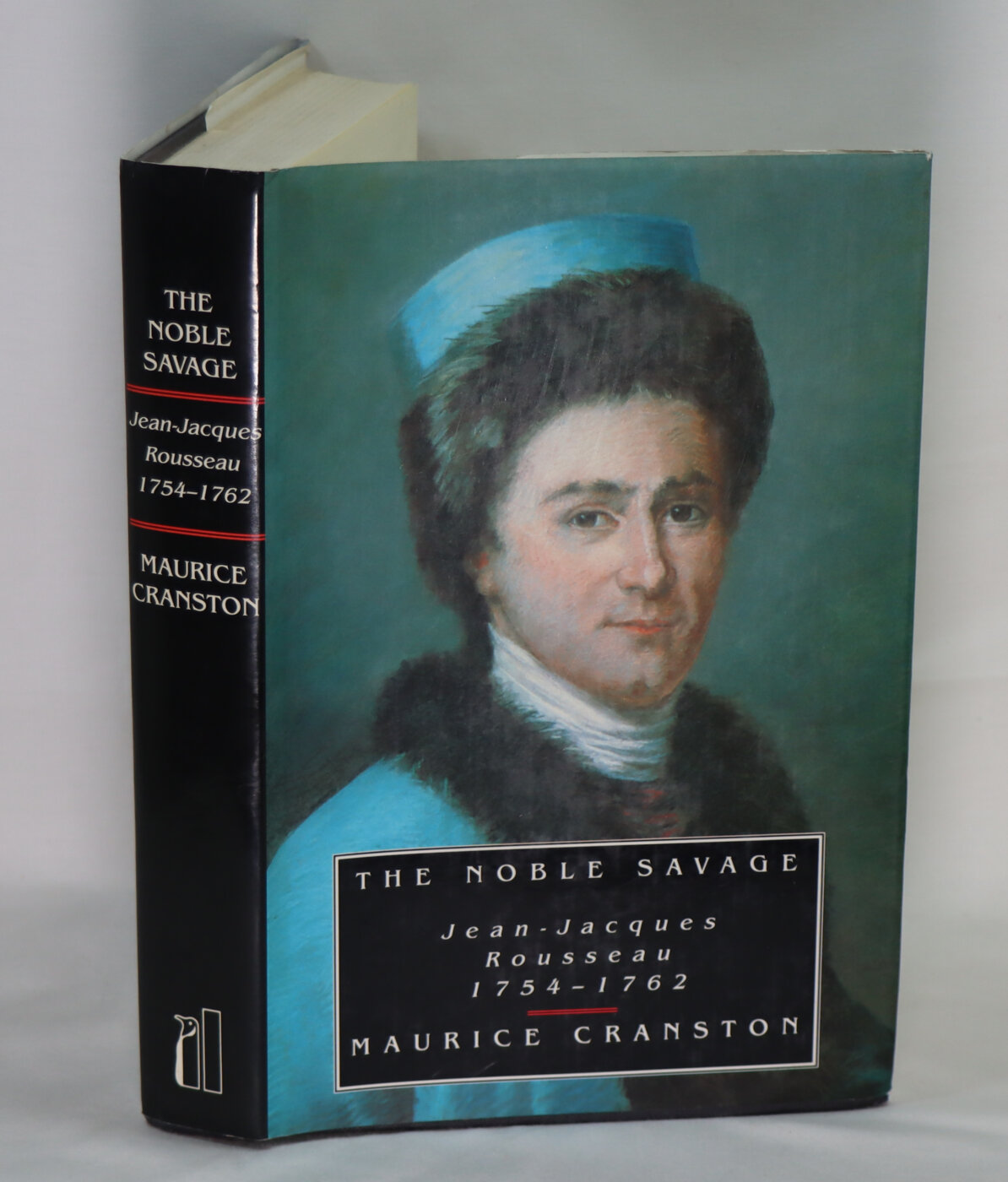
Related products
Share this Page with a friend

